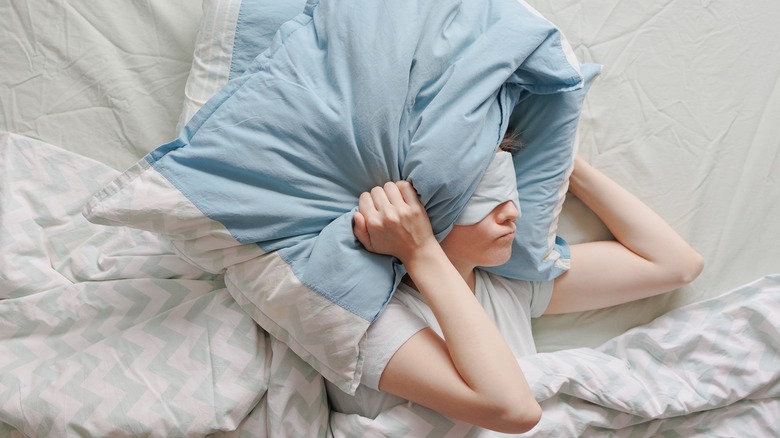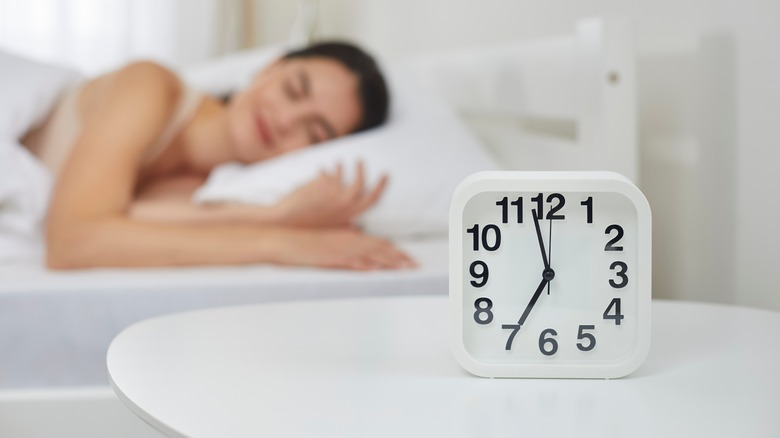Looking To Boost Your Mental Health? Study Suggest You May Need More Sleep
Not getting enough sleep may have an impact on your mental health, according to a new study published in the journal Translational Psychiatry. Researchers from the University of California, Irvine examined the connection between circadian rhythm disruptions (CRD) and mental health and neurodevelopmental disorders by reviewing existing research on the effects of CRD (via UCI News). Circadian rhythm is the body's biological clock. It influences your sleep and wake cycle and helps regulate some of the body's most basic functions, like body temperature, memory, and hormone production. Since circadian rhythm is particularly sensitive to light and darkness, it can easily be disrupted by exposure to light in the middle of the night.
As it turns out, researchers found a link between CRD and every mental health condition that they examined in the study. "The telltale sign of circadian rhythm disruption — a problem with sleep — was present in each disorder," Dr. Amal Alachkar, a neuroscientist, professor of teaching at UCI's Department of Pharmaceutical Sciences, and lead author of the study said in a news release. Alachkar noted that, while the research team largely focused on conditions like autism, ADHD, and bipolar disorder, the CRD psychopathology factor was also shared by other mental health issues, including obsessive-compulsive disorder, anorexia nervosa, bulimia nervosa, and food addiction.
How to reset your circadian rhythm
If you're having trouble sleeping at night, you may need to reset your circadian rhythm. According to the Cleveland Clinic, this entails changing what time you wake up in the morning and what time you go to sleep at night. That's why it's important to stick to a routine. This will make it easier for you to fall and stay asleep. However, this reset won't just happen overnight.
The most effective way to reset your circadian rhythm is to gradually move your bedtime up by half an hour each week. For instance, if your current bedtime is 12:00 a.m., you should try going to bed at 11:30 p.m. every day for a week and wake up seven to nine hours later. In addition, working out, limiting screen time, and avoiding caffeine and alcohol before bed can also help keep your body in sync with your biological clock and help you sleep better at night.


